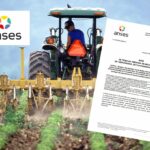
Twelve nanomaterials to be banned in cosmetics at European level
Following health concerns raised by the Scientific Committee on Consumer Safety (SCCS), the European Commission is set to ban the use of five groups of twelve nanomaterials in cosmetics in total:
- styrene acrylate copolymer, sodium styrene acrylate copolymer,
- copper, colloidal copper,
- hydroxyapatite,
- gold, colloidal gold, gold thioethylaminohyaluronic acid, colloidal gold acetylheptapeptide-9,
- platinum, colloidal platinum and colloidal platinum acetyltetrapeptide-17.
The draft regulations have been published and are open for comments until April 12. It amends Annex II of the Cosmetics Regulation (which lists the substances prohibited in cosmetic products) to add these twelve nanomaterials in order to protect human health.
The text provides for a “reasonable period of time” to be granted to manufacturers to make the necessary adjustments in terms of product formulation and labeling.
Another deadline should be defined for the withdrawal of cosmetics that do not comply with the new requirements and that have been placed on the market before the entry into force of the new requirements.
The length of these periods should be determined taking into account the concerns of the SCCS and the potential risk to human health associated with the specific nanomaterials, as well as the number of cosmetic products involved.
Our information sheets to go further
Other news on the topic
Upcoming Nano Agenda

- Citizen webinar for the general public and the university community.
- Organizers: Research department Law & Social transformation (DETS), University of Bordeaux
- Speakers:
- Marion Tissier-Raffin, Senior Lecturer in Public Law, Centre de recherche et de documentation européennes et internationales (CRDEI), University of Bordeaux
- Mathilde Detcheverry, General Delegate, Association AVICENN – Veillenanos
- Didier Morin, University Professor of Neuroscience, UMR CNRS INCIA, University of Bordeaux
- Website: https://dets.u-bordeaux.fr/animation-scientifique/webinaires-citoyens/saison-2024-2025

- 5th Joint Symposium on Nanotechnology
- Organizers: the Fraunhofer Nanotechnology Network, with the support of the Federal Institute for Risk Assessment (BfR)
- Date: May 13-14, 2025
- Topics:
- the application of nanotechnology in various sectors, including digitalization, 2D/3D printing, carbon-based materials and battery materials
- nano on various regulations (REACh, food contact materials, cosmetics, bioagents, PPPs)
- adaptation and development of OECD Test Guidelines for nano and advanced materials (Malta Initiative)
- review on nano-specific NAMs (new approach methodologies)
- when you’re nano and you know it: dealing with uncertainty regarding the nanomaterial definition in regulatory frameworks
- …
- Website: www.isc.fraunhofer.de/…2025/5th-symposium-nanotechnology.html
- 4-day training :
- the different routes by which toxic substances can enter the body
- the importance of toxicokinetics in preventing the toxicity of substances,
- the absorption, distribution, metabolisation and elimination of xenobiotics
- the toxicity of nanoparticles
- Organizer : Association Toxicologie Chimie (ATC)
- From May, 19 to May, 22
- Speakers :
- Frédéric Gaidou (Chemical engineer specialising in Toxicology, ERAMET Group, Paris, President ATC Paris)
- Sarah Dognin dit Cruissat (Doctor of Pharmacy, nutritionist, toxicochemist, CALMEVA, Lyon)
- Jean-Dominique Puyt (Veterinary Doctor, Honorary Professor at the École Vétérinaire, Nantes)
- Isabelle Malissin (Doctor, Hôpital Lariboisière, Paris)
- Nicole Proust (Research Engineer, Honorary Director of Research at the CNRS, Specialist in Nanotechnologies, Arsenic, Electromagnetic Waves, Palaiseau)
- Marie-Chantal Canivenc-Lavier ((Nutri-toxicologist, Centre des Sciences du Goût et de l’Alimentation INRA-Dijon)
- Claude Lesné (Doctor, Honorary Senior Research Engineer at the CNRS)
- Nicole Proust (Ingénieure Recherche, Directeur de recherche honoraire du CNRS, Spécialiste Nanotechnologies, Arsenic, Ondes électromagnétiques, Palaiseau)
- Website : https://www.atctoxicologie.fr/notre-formation.html





